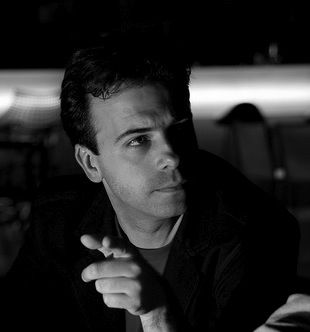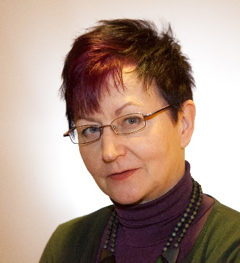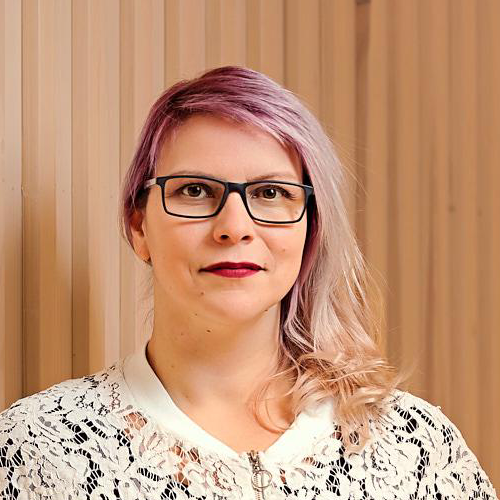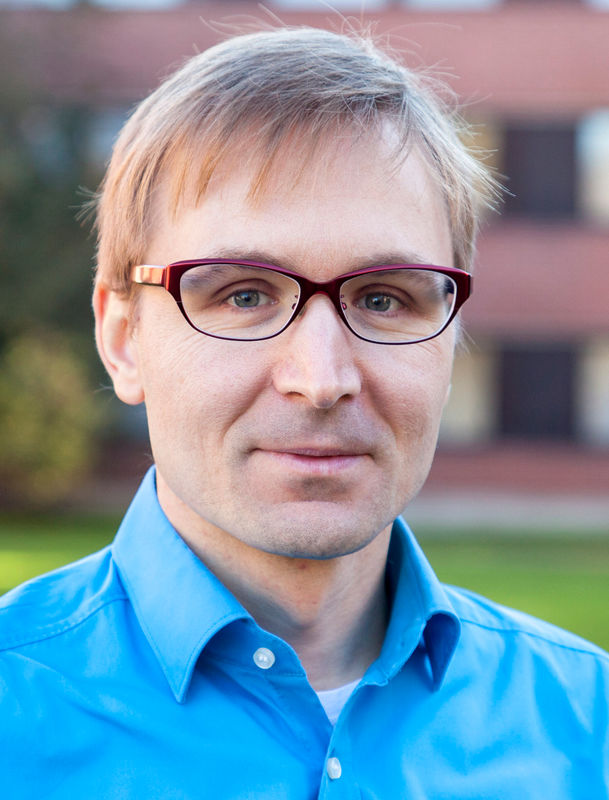Health & Behavior Data Symposium
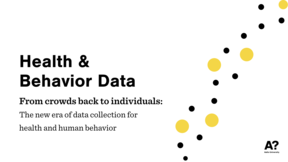
When
Where
Event language(s)
Technology has made it possible to study people’s behavior at an unprecedented level of detail. The advent of mobile devices and sensors allows both passive and active individual-level data collection. This opens opportunities for research, particularly in the fields of health and human behavior. High-resolution data can be collected from devices as diverse as mobile phones, wearables, social media platforms, and online surveys.
Data can be collected both purposefully (controlled studies) and as a side-effect of other processes (secondary use). It can then be processed and analyzed for various purposes from "quantified self" feedback to digital phenotyping and personalized medicine. These topics have a high impact on modern research, business, and society.
This symposium will gather the data collection community both in the Helsinki region, Finland, and internationally to discuss and network. The symposium will provide an opportunity to see the state of the art of data collection from humans, both on the tools needed to collect data and applications and analysis of that data. Topics will include design and technology, research questions, analysis and computation, ethics of human data collection, and the current ecosystem at Aalto, in Finland, and beyond.
Symposium talks are available on YouTube:
See Aalto Computer Science's channel!
Program
8:30 Coffee
- DIY Conference Badges available on site!
9:00 Welcome, Jouko Lampinen, Dean of School of Science, Aalto University
Keynote & talks begin
• The public value of data: challenges and opportunities. Ciro Cattuto, Scientific Director, ISI Foundation, Italy
• Long-term data and wearables - learning from your body reactions. Heli Koskimäki, Senior Data Scientist, Oura Health and Adjunct Professor, University of Oulu
Break and Coffee
10:30 Talks continue
• Sleep and sleepiness monitoring. Jussi Virkkala, Medical Physicist, Finnish Institute of Occupational Health
• Secondary use of health and social data. Jarkko Reittu, Data Protection Officer, THL
• Panel discussion & questions
Lunch
12:30 Talks continue
• A doctor’s dream of future digital era healthcare. Kiti Müller, Senior Neuroscientist, Nokia Bell Labs
• How to turn heartbeat into a secret key... and why your WiFi router already knows it. Stephan Sigg, Assistant Professor of Ambient Intelligence, Aalto Department of Communications and Networking
• Aalto Research Showcase
• Panel discussion & questions
13:50 Closing and workshop orientation
14:05 Closing remarks, Kimmo Kaski
Break and coffee
14:30–16:00 Afternoon Workshops
See workshop subjects below.
After-work session at restaurant Fat Lizard
Talks
Ciro Cattuto
The value of big data and advanced analytics lies, in great part, in the opportunity to make better decisions and to design better policies. Identifying needs, targeting interventions, and measuring impact are all challenges that can greatly benefit from more quantitative approaches and from data-intensive methods. This talk will reflect on the complex interplay of new data sources, data science methods and algorithmic decisions, highlighting opportunities as well as challenges for the generation of public value and social impact.
Heli Koskimäki
The Oura ring is a sleep and activity tracker that learns about you: it measures the physiological signals of your body, finds your individual baselines and, and guides you to make your daily choices based on your own body reactions. These reactions can be seen for example as changes in heart rate, heart rate variability, sleep and temperature. By finding the patterns through the longitudinal data you can enhance the positive triggers and avoid the choices not suitable for you. In this talk we will go through how the changes are seen in individuals’ data but also look some interesting population-wise results.
Jussi Virkkala
Sleep is an important part of our health and wellbeing. Circadian timing and prior wakefulness regulate sleep. Use dependent local sleep changes and effects of closed-loop stimulation have demonstrated active nature of sleep. Sleep is affected and has effect on many aspects of health and wellbeing from mood to chronic diseases. Sleep disorders and reduced quantity and quality of sleep increases sleepiness leading to accidents especially in monotonous tasks like nighttime driving. Process of clinical sleep disorder diagnosis is well established and is the gold standard for diagnosis. Different sleep stages affects body mobility and autonomic nervous system. With these surrogate signals, sleep stages can be estimated for long periods. With advances in mobile devices and in consumer electronics there are new opportunities for large scale sleep and sleepiness data collection.
Jarkko Reittu
A separate law on the secondary use of health and social data (Act on the Secondary Use of Health and Social Data, https://www.eduskunta.fi/FI/vaski/EduskunnanVastaus/Sivut/EV_303+2018.aspx) was accepted in the Parliament of Finland on 13 March 2019. The new act shall change the ways how the customer or patient health and social data can be utilized, for example, in the scientific research and teaching. Ministry of Social Affairs and Health shall form a new data permit authority, which shall grant the permissions for the secondary use of such data. New authority shall also provide the secure user environment where the data should be processed on most cases in the future. What this new legislation means in practice for the researchers?
More information: https://stm.fi/en/secondary-use-of-health-and-social-data
Kiti Müller
Kiti Müller will give a doctor’s perspective and overview on how new wearable solution and digital era opportunities to examine and communicate with patients combined with developing data science can change and improve healthcare.
Stephan Sigg
The talk will briefly introduce a selection of recent research challenges and applications in Ambient Intelligence, covering Usable Security, specifically how to securely generate common secrets from noisy data; RF(WiFi)-sensing and activity recognition; as well as various applications exploiting head-mounted cameras.
Facilitator: Krisztina Cziner
Lightning talks by Aalto researchers.
- Tommi Himberg, Aalto, Department of Neuroscience and Biomedical Engineering.
- Lauri Neuvonen, Aalto, Department of Information and Service Management.
- Ana Maria Triana Hoyos, Aalto, Computer Science and Neuroscience and Biomedical Engineering.
- Yu Xiao, Aalto, Department of Communications and Networking. "Virtual Reality for Physical Therapy"
- Kunal Bhattacharya, Aalto, Computer Science, "Modelling emergent social structures and migration using population register data"
- Matti Heino, University of Helsinki, "Motivation self-management: Complex systems in occupational health psychology"
Workshops
The final part of the symposium program is workshops, where small groups of people will gather to intensively discuss certain topics. Workshops are pre-planned and listed below (location in parentheses).
There is a growing body of research highlighting relations between everyday travel choices and individual’s physical and mental health. This research stream has potential for new significant findings due to capacity of widespread mobile sensing, which has enabled individual-level data collection over long periods. Findings open up the multidimensionality of human behavior, where decisions often involve tradeoffs between time available, health effects, carbon emissions, etc. However, further research and development has to account for both novel methods of defining studies and data collection procedures. In addition, there is a need for further development of useful and usable data analysis and visualization methods. This workshop will focus on ideation for multiple potential development pathways that could be enabled in this data-rich context.
Organizer: Miloš N. Mladenović, Assistant Professor, Department of Built Environment
In theory, there are simple procedures to follow when using personal data. The reality is that research pushes the limits in every direction at once. This workshop is focused on exploring those limits. Depending on audience interest, the current Aalto and Finnish personal data and ethics processes can be discussed as well.
Organizer: Maria Rehbinder, Senior Legal Counsel, Aalto University
This workshop will usability issues of wearables and presentation of data from a doctor's perspective. How to design solutions that work for both patients, healthcare experts and other caregivers? How to ensure that gathered data makes sense to users with different needs? How can design support understanding health?
Organizer: Kiti Müller, Senior Neuroscientist, Nokia Bell Labs
Many groups, in almost all schools, collect data from humans. But do they work together and even know of each other? This workshop will connect groups and researchers who do data collection, identify synergies, and hopefully find ways to save time by working together. An ideal outcome would be a data collection infrastructure at Aalto, with shared expertise and "data collection as a service", making previously difficult projects routine.
Organizer: Richard Darst, Aalto University
We will give a demo of our system of collecting and syncing data (movement, physiology, qualitative ratings, annotations...) from multiple people using cheap, wireless sensors. This allows us to combine “third person” objective measurements with “first-person” subjective experiences. In the following discussion, we can compare use cases and discuss issues regarding data analysis, and the kinds of qualitative and quantitative data needed for understanding social experiences.
Organizer: Tommi Himberg, Department of Neuroscience and Biomedical Engineering, Aalto University
This workshop will follow from Stephan's Sigg's talk on ambient intelligence and discuss how sensors and ambient intelligence in a wider variety of research, and how to make that happen.
Organizer: Stephan Sigg







